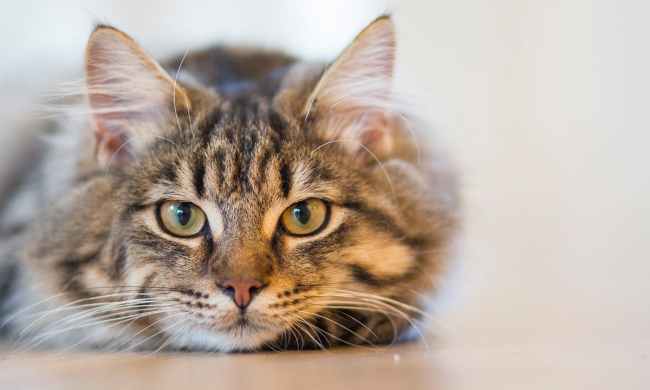If pet owners had one wish, it would be for their fur babies to live forever. I know that would be my wish! My dogs are my whole world, but I know there will come a day when it’s time to say goodbye. Knowing an animal’s general life expectancy can help pet parents learn what to expect as their animals age, but many folks are surprised to find that some pets live longer than others. Specifically, it’s often said that cats live longer than dogs.
Do cats live longer than dogs? If so, why do cats live longer than dogs? There are many factors to consider, so let’s dive right in so we can turn questions into answers.
Do cats live longer than dogs?

If you feel like you’ve met more cats than dogs that have lived into their late teens (and even 20s), you’re not imagining things. One of the reasons cats are said to have nine lives is that they can live extremely long lives with enough luck and survival skills.
Typically, cats live for 13 to 17 years on average, though many also live into their 20s. In fact, the oldest cat ever recorded was a tabby cat named Creme Puff that lived to be over 38 years old!
Dogs’ life expectancy varies based on several factors, including a dog’s breed, size, and underlying health conditions. We’ll expand on this more below, but it’s important to know that cats have a longer life expectancy than most dogs.
Why do cats live longer than dogs?

There are several reasons why cats have longer life expectancies than dogs, but remember — these numbers and facts are all averages. Some dogs will outlive feline friends born at the same time, while others will sadly only be around for a fraction of the time.
Here’s why cats live longer than dogs.
Smaller size = longer lifespan
Veterinarians are still cracking the code behind this, but when it comes to domestic animals like dogs and cats, a smaller body tends to correlate to a longer lifespan. This is because large dogs tend to age faster. Their cells age and multiply faster in order for a large dog to grow so big, but this also means that they experience the effects of aging even sooner. Anti-aging pills for dogs may show some hope of slowing this process down.
Rapid cell growth also makes large dogs more likely to develop cell mutations, which can develop into cancer. Whether a large dog develops cancer or passes naturally at an old age, their smaller counterparts are more likely to outlive them.
The same can be said when comparing dogs and cats! Cats are smaller than most dogs, which is one reason why their bodies age more slowly than dogs’.
Evolution and survival skills
Both cats and dogs can survive on the streets or even in the wild, but cats are gifted with many skills and physical traits that enable them to live independently. Their sharp teeth and claws make excellent weapons and utensils for eating, while their righting reflex helps them land on their feet when jumping or falling from impressive heights. Cats are even less likely than other animals to catch infectious illnesses due to their independent natures.
Dogs, on the other hand, have been bred for companionship instead of survival. Plenty of dogs are capable of surviving outdoors, but not all dogs have retained these skills.
Genetic diversity and breeds
Speaking of breeding, this has more of an impact on animals’ health than many people realize. Selective breeding, or breeding pets to create or emphasize certain traits, often results in genetic diseases and heritable illnesses that result in shorter life expectancies. Brachycephalic dog breeds like boxers are a great example of this because they keep being bred for their short snouts despite the health complications that make their lives shorter and more difficult.
As it turns out, dogs and cats have longer life expectancies when they’re mixed breeds, not purebreds. Mixed-breed dogs live, on average, 1.2 years longer than pure-bred dogs, while mixed-breed cats live 1.5 years longer than pure-bred cats.
Can you increase an animal’s lifespan?

While you can’t change the fact that cats live longer than dogs, you can take certain measures to help increase the chances of your pets living longer. The best things you can do for your pet are feed them a nutritious diet, ensure they get plenty of exercise, and prioritize mental enrichment. Visit your veterinarian to create the best plan for your pet’s specific needs, and be sure to stay up to date on all vaccinations and exams.
Knowing your pet’s life expectancy can be helpful, but it can also cause unnecessary stress over things you can’t control. Instead, focus on prioritizing your pet’s health and happiness, and live in the moment with your best furry friend.




